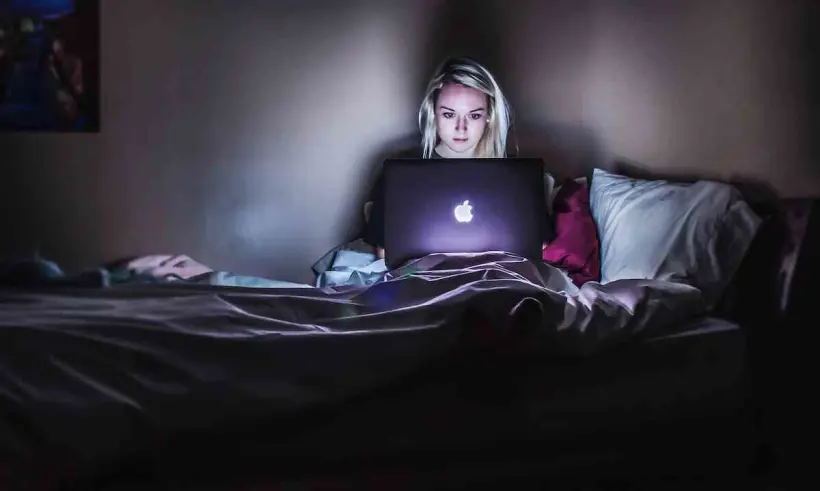The feeling of burning out is common for people working at startups. Oftentimes, if you are feeling burned out, you aren't the only one feeling that way. I chatted to some GitLab team members about how they knew they were burned out, and how they get back on track.
It's easy to burn out when you work remotely. It's easy to work straight through lunch, and feel like you must put in extra hours to help finish a big project. With monthly releases, many features feel extra important and necessary to put in extra time. This isn't ideal because pacing yourself actually works out cheaper in the long run, as burning out takes extra time for recovery.
During the last summit, Marin led a session about preventing burnout, thanks Marin! A lot of GitLab team members attended that session and many had similar feelings of either being burned out or feeling like they are on their way towards it. Some even mentioned that they were starting to experience those physical signs of feeling burned out (e.g. frequent headaches). After the summit, we as a team added more resources to the handbook and created some tools on how we as a team can recognize and prevent burnout.
How to recognize if you're burned out, according to GitLab team members
You're constantly tired
For me, the greatest signal of burnout is struggling to get out of bed in the morning. I tend to stick to pretty standard working hours so when I work late in the evening, multiple nights in a row, I start to struggle to get up in the morning or even lose track of what day it is. I recognize this as burnout because usually it isn't hard for me to get up and get my day started. In fact, I'm usually up long before I start work so I can make breakfast, walk my dog, do some creative writing. But when I'm burned out, I will wait until 8 or 8:30 to get up and go straight to the computer like a zombie. - Erica Lindberg, former manager, Global Content
I didn't realize I was burned out until I finally took a vacation. I experienced many symptoms but was not aware of it and since I was experiencing them for so long, I thought it was normal. I was extremely tired all the time and whenever I decided to take a break during the day, I would often fall asleep with my laptop on my lap. - Anonymous GitLab team member
You no longer enjoy things
I started losing my general feelings of enjoyment in life. Even the fun activities I had planned, weren't activities I looked forward to. - Anonymous GitLab team member
Your job performance suffers
I would put in extra hours to make up for my productivity but it still didn't seem to measure up with my past performance. - Jacob Schatz, Frontend Lead
Your relationships are strained
I would also have a hard time remembering information, so much so that my friends began noticing the difference in me. I found myself being agitated and angry towards the people around me but couldn't figure out the reason. - Anonymous GitLab team member
How to prevent burnout, according to GitLab team members
Set clear boundaries between work and home
I'm trying to limit how many days I allow myself to work over eight hours by either scheduling other activities in the evening with friends or my partner (it works better when you've committed to someone so they can help hold you accountable. These things can be anything from rock climbing to dinner or watching a movie) or simply blocking out my calendar and setting reminders for when it's time to shut off. And when it is time to shut off I'm come up with a "ritual" of shutting down my computer, turning off my keyboard, monitor, and light in my office – this makes it harder to come back to "just finish up one last thing" - Erica Lindberg, Content Marketing Manager
In order for me to prevent myself from burning out, I follow several rules. I make sure I only work seven hours a day and spend two additional hours learning. I dedicate at least seven hours of sleep every day, and I make sure I go to the gym and eat healthy regularly as part of my daily routine. - Anonymous GitLab team-member
Take vacation
After my vacation, where I did absolutely nothing except enjoying nature, I came home feeling much more energized. I am now a happier person. I am less sleepy and agitated and have found myself much more productive than ever before. That week of vacation gave me years of my life back that I would have never gotten if I didn't truly disconnect from work. - Jacob Schatz, Frontend Lead
Know when to take a break
Last week, I was feeling really tired and emotional (upset and stressed) about certain things. When I noticed that, I cancelled my last meeting of the day last minute, even though it was with Sid. I wouldn’t have been productive and able to deal with the stress. So I took off the rest of the day. I was 10x better equipped to handle things the next day. - Job van der Voort, former VP of Product
Switch off when you're away from work
I try to stop thinking about work over the weekends or in the evenings. I practice meditation, mindfulness, and deep breathing. - Suri Patel, Content Marketing Associate
Don't suffer in silence
I experienced burnout at my previous company. If it were to happen again, I would speak to my manager and openly discuss my situation, telling him or her that the pace is not sustainable and that something needs to change. It might be a scary topic to discuss, but burnout doesn't just affect my professional life – it has an impact on my personal life, most importantly on my health, so having these transparent conversations is a necessity. I would speak to my manager as soon as I started feeling overwhelmed over a prolonged period of time. There will always be phases when we have to work more than usual, but if long hours become a norm, then it's something that needs to be addressed right away. - Anonymous GitLab team member
Other good habits to prevent burnout:
- Don't go straight to work after you wake up. Try not to start working within 30 minutes of waking up
- Remove Slack from your smartphone or at the very least, turn off notifications for it
- Keep each other accountable. When you notice someone in a different time zone should be asleep, tell them
- Use your Slack status to share a message with the team that you are unavailable
- Schedule random coffee breaks
Changes we added to the handbook
- Encourage team members to communicate with their manager when they recognize burnout
- Encourage team members to notice signs of burnout in their peers and direct reports
- Added tips to avoid burnout
What are some strategies you have to prevent yourself from burning out? Please comment below. We'd love to continue being proactive against burning out.
Photo by Victoria Heath on Unsplash



